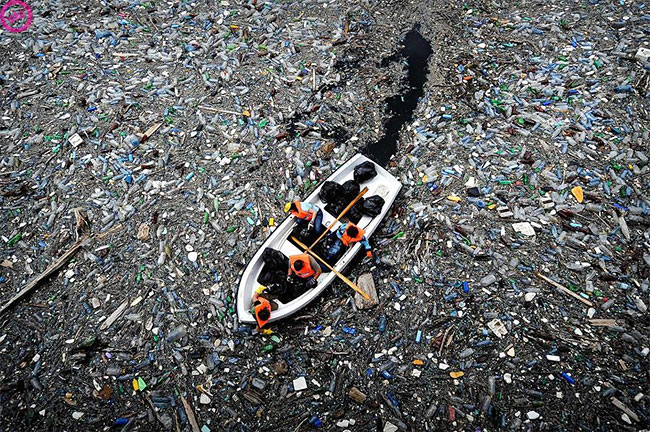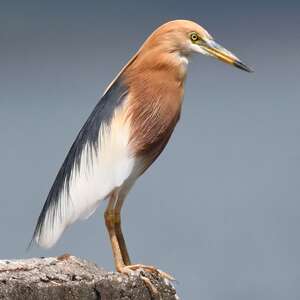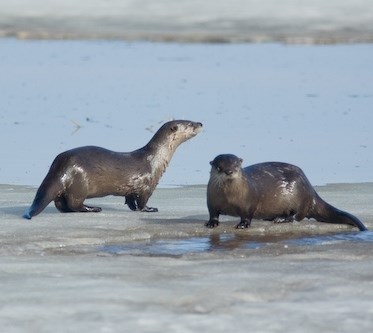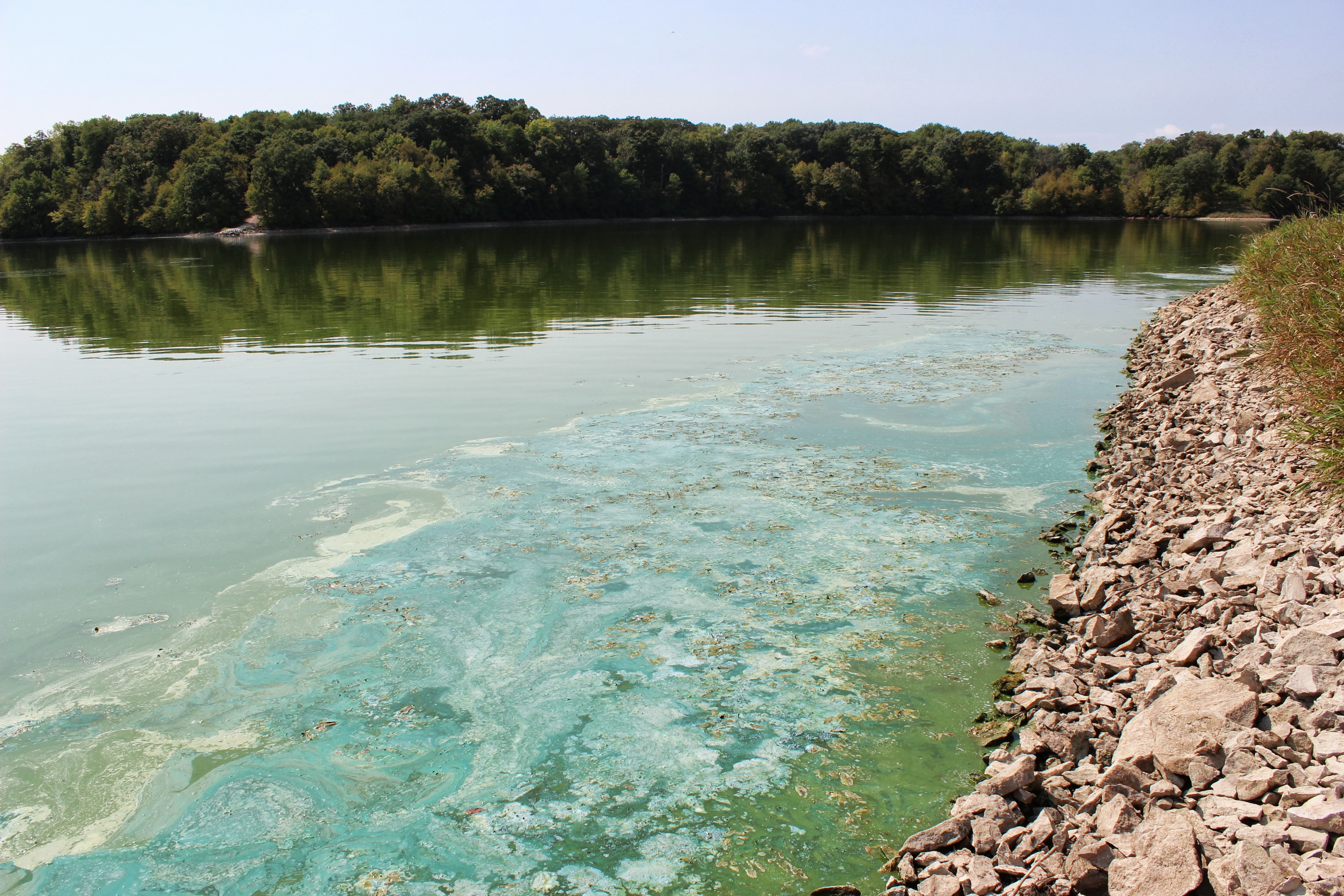The Consequences of our Actions: How our pollution has affected the wildlife around us
By: Nicholas Ronald Parris 47222067
Soaring through the air, a Javan Pond Heron searches for its next meal. It has been soaring in the air for the last half hour looking for its preferred hunting grounds, the shallow muddy waters of a river. It spies a large body of water east of Jakarta, the largest city in Indonesia. This body of water is the Citarum, a winding river that over the recent decades has become choked with pollution.

http://www.austroindonesianartsprogram.org/blog/most-polluted-river-world-citarum-river-indonesia
The heron lands and begins looking for a meal in the heavily polluted waters, it slowly walks along the muck of the shallow shores that are more plastic and glass than silt and mud. It continues to look through the murky waters, attempting to find any source of food to fill its empty stomach. Suddenly a small white flash appears in the corner of its eye. It quickly turns its neck and head towards where it was last seen and stands motionless, preparing to strike.

https://www.oiseaux.net/birds/javan.pond.heron.html
Its eyes fixed on the target, it swiftly launches its attack, opening up its mouth to swallow the morsel whole. Its strike is a success and it pulls the meal out of the water, swallowing it whole. Unfortunately, what it caught was not the fish it was looking for, but instead a small plastic pill bottle. With no way to swallow the rigid piece of plastic, it remains stuck in the heron’s throat. It panics as it can no longer breathe and slowly and painfully dies. Its body slowly joins the rest of the pollution of the Citarum river.
On the other end of the world, a romp of otters hides away in their riverbank hideout. A miracle has happened, the head female has just given birth to a litter of pups. These pups are merely hours old and need to be kept warm and fed by their mother in order to survive. She does this in the burrow as her mate and the others of the romp leave to search for food.

https://www.nps.gov/miss/learn/nature/otters.htm
The Mississippi river that they make their home in is large and sprawling, with winding bends and deep waters, perfect for a family of otters to make their home. As they continue to scout out the area, they dive underwater looking for fish to hunt for themselves and to take home to the waiting mother and her new pups. The waters however are sparse and only hold fish too small to attempt to catch. As they swim, the water continues to grow greener as clusters of algae growing at the bottom of the river continue to overpower other aquatic vegetation. The only life in these waters are the algae and the bacteria that feed on the dirty water. There are very few living things in this river. Without a catch or any prospects of food, the romp returns home to a dejected mother.

She has been providing milk for her babies, but she must eat soon. Days go by, and there is simply nothing to eat, the Otter mother’s teats have long gone dry and the cries of the otter pups continue to call out in hunger. Desperation falls onto the romp as they simply have no other option, they must move or suffer starvation. The mother simply cannot carry her pups and they are too young to survive on their own. She does the only thing she can, and eats the otter pups.
These are only two of the events happening around the world. As pollution ravages our freshwater rivers and lakes, animals who evolved to live in these polluted environments continue to be harmed as their ways of living are permanently altered. Cleaning our rivers and lakes and reducing our pollution are things we need to do as a species in order to keep our waters clean, usable, and ecologically sound so that we don’t lose any more organisms than we have already.
Freshwater is a critical resource used by both humans and animals. It has allowed us to create civilizations and live our lives comfortably until now. Freshwater is a fundamental need for all living organisms and the gross misuse of our few sources of it has continued to grow. We are not the only things that need this water. For the sake of the world, we as a species who were able to change these habitats and live sources need to change them back to what they once were.
By doing your own work of keeping reusable plastic and glass waste and using non wasteful products that have less impact on the environment as well as donations towards causes that help clean up our freshwater sources and reintroduce the species that were once a part of those ecosystems. You can do your part to get our rivers and lakes back in working order and combat the slow march to a barren environment and polluted world.
Below are two ways you can donate to the cause of cleaning up the rivers mentioned in the above stories.
A movement in Indonesia dedicated to cleaning the Citarum River:
https://www.riverrecycle.com/indonesia-citarum-river-cleanup/
An organization that works to clean the Mississippi River where you can donate or volunteer:
